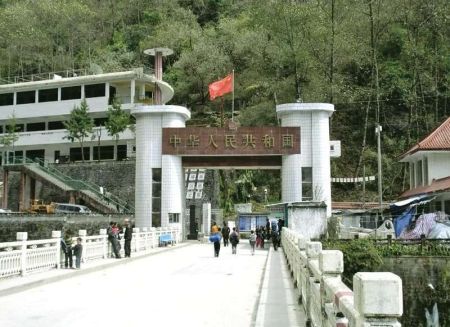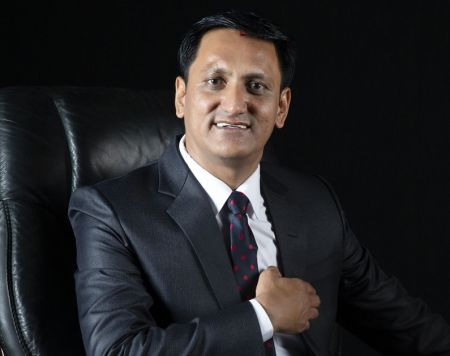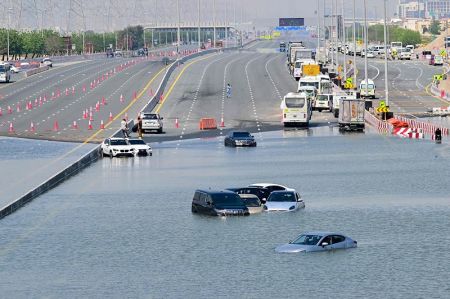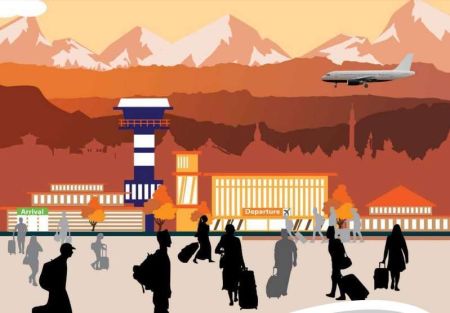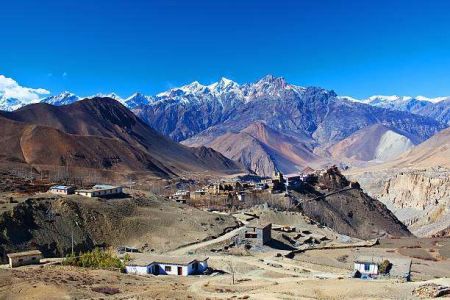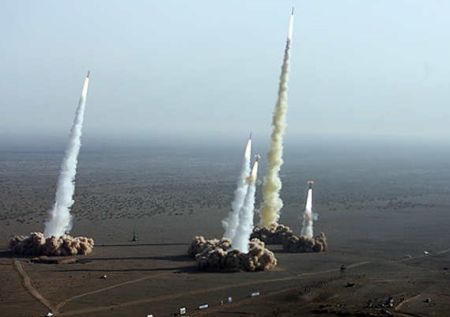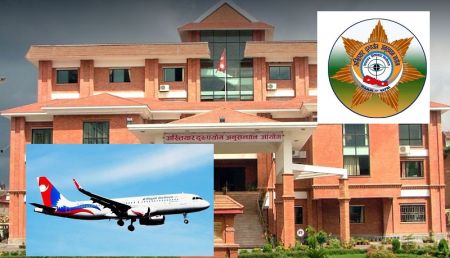.JPG) Amazon in Shanghai E-commerce Pact
Amazon in Shanghai E-commerce Pact Amazon has stepped up its presence in China with a strategic partnership with the Shanghai Free Trade Zone (FTZ). Amazon's branch in China has signed a memorandum of understanding (MOU) with the Shanghai FTZ and Shanghai Information Investment Limited (SII).The deal paves the way for Amazon to bring millions of its e-commerce product offerings from around the world directly to Chinese customers.
It comes as Amazon celebrates 10 years of operations in China. Amazon has declined to comment on how much it will spend to set up business in the Shanghai FTZ. In a statement Doug Gurr, president for Amazon China said: "We seek to be the most customer-obsessed on-line shopping platform with vast selections, competitive price and most convenience in China. "Today's partnership announcement with FTZ and SII will help Amazon further realise our vision." Under the pact, Amazon will open its new cross-border e-commerce platform in the free trade zone.
The online retailer will also establish a logistics and warehouse centre in the FTZ, whereby imported goods will enter China via the zone's cross-border e-commerce platform. Also as part of the deal, products from small and medium-sized enterprises in China can be sold to Amazon customers across the world. China's e-commerce market is heavily dominated by home-grown names Alibaba and JD.com.
.JPG) Argentina Debt Plan Ruled 'Illegal' in US Court
Argentina Debt Plan Ruled 'Illegal' in US Court Argentina's plan to exit its debt default by asking investors holding defaulted bonds to swap them for new locally issued debt has been ruled "illegal" by a US court. New York Judge Thomas Griesa said the plan was "lawless". However, he stopped short of finding the country in contempt of court. Argentina was trying to get around an earlier court ruling banning it from paying interest to investors who had accepted restructured bonds. Griesa ruled in July that the country must first pay the hedge funds holding out for full payment on the bonds on which it defaulted in 2001. "I want to be very clear, this proposal is a violation of the current orders of this court... it is illegal and the court directs that it cannot be carried out," Griesa said on Thursday, 21st August.
The hedge funds, which bought Argentina's bonds at a big discount after its economic meltdown and previous default in 2001-02, are owed an estimated USD 1.3 bn. Argentina has consistently refused to pay them, saying it cannot afford to do so, and called them "vultures" for refusing to swap their bonds for lesser valued ones. Griesa likened Argentina's stance to a man showing up to complete a house purchase with only USD 80,000 to buy a USD 100,000 property and insisting: "USD 80,000 is a lot of money and my family is ready to move in". "He would be laughed out of the neighbourhood," the judge added. Griesa urged the two sides to try and find a compromise.
.jpg) BHP Billiton to Create New Metals and Mining Company
BHP Billiton to Create New Metals and Mining Company The world's biggest mining BHP Billiton plans to spin-off some of its assets into a new USD 14bn metals and mining company in order to simplify its operations. The firm also posted a rise in annual profits of 23 billion to USD 14 bn, missing analysts' forecasts. BHP chief financial officer Graham Kerr will head the new company, which will contain the aluminium, coal, manganese, nickel and silver operations. The new entity, called NewCo for now, will list on Australia's stock market.
It will also have a secondary listing in South Africa. However, the proposal still needs to go through a shareholder vote and be approved by regulators. BHP said the demerger will allow it to focus on core businesses in iron ore, copper, coal, petroleum and potash production.
"By concentrating on what we do best, the development and operation of major basins, we can improve our productivity further, faster and with greater certainty," BHP chief executive Andrew Mackenzie said in a statement. Analysts said they had been expecting the spin-off, which is expected to be completed in the first half of 2015. "Cash from an asset sale is no longer critical to the group," David Lennox, a resource analyst from Fat Prophets in Sydney said. "Removing underperforming businesses has become critical in the battle to generate shareholder returns and allocate capital." BHP ranks among the world's largest producers of major commodities which include aluminium, coal, copper as well as silver and uranium. The company also holds substantial interests in oil and gas.
.jpg) Coke Buys USD 2.15 bn Stake in Monster Beverage
Coke Buys USD 2.15 bn Stake in Monster Beverage Coca-Cola has announced it will pay $2.15 billion for a 16.7 per cent stake in Monster Beverage, cementing a distribution-based link between the two that had added significantly to Coke’s profits. The deal would lock in for the soft drink giant a share of the energy drink market, where its own brands have lagged far behind Monster Energy and rival Red Bull. Coke will transfer ownership of its energy drinks unit — brands including NOS, Full Throttle and Burn — to Monster, and take over Monster’s non-energy brands such as Hansen’s Natural Sodas, Peace Tea and Hubert’s Lemonade. Meanwhile, Coke will expand its distribution of Monster drinks under long-term deals, and put two directors on the Monster board.“The Coca-Cola Company will become Monster’s preferred distribution partner globally and Monster will become The Coca-Cola Company’s exclusive energy play,” the two announced.
The deal comes four months after Coke denied rumours it was in talks to buy Monster Beverage. Critics said a close tie-up was necessary to prevent a rival such as Pepsi from buying up a significant contributor to Coke’s bottom line. “Our equity investment in Monster is a capital-efficient way to bolster our participation in the fast-growing and attractive global energy drinks category. This long-term partnership aligns us with a leading energy player globally,” said Muhtar Ken, Coke Chairman and Chief Executive.
 Eurozone Economy Grinds to a Halt in Q2
Eurozone Economy Grinds to a Halt in Q2 The eurozone’s faltering recovery ground to a halt in the second quarter of 2014, dragged down by weaker-than-expected performances by the region’s two biggest economies — Germany and France. Gross domestic product in the 18-member currency bloc came in at zero in Q2 — down from 0.2 per cent in the first three months of the year, the European Union’s statistics office Eurostat said Thursday, August 14. Analysts had expected the region to expand by 0.1 per cent in the April-June quarter.
The disappointing eurozone GDP data came in the wake of a slowdown in both Germany and France, which offset signs of a rebound in the economies that have been at the centre of the region’s long—running debt crisis. While the Spanish economy grew by a solid 0.6 per cent, Greece’s six—year long recession eased somewhat, with the country’s GDP contracting by just 0.2 per cent. The Greek economy had slumped by 1.1 per cent year—on—year in the first three months of 2014. No quarterly figures were available for Greece. The German economy, meanwhile, contracted by 0.2 per cent after expanding by 0.7 per cent in the first quarter, while France stagnated for the second consecutive quarter, Eurostat said. Analysts had expected German GDP to have shrunk by 0.1 per cent, while France’s had been predicted to expand by 0.1 per cent. Year on year, the eurozone economy also lost momentum, slowing from 0.9 per cent in the first quarter to 0.7 per cent in the three months ended June.
 200 Tonnes of Smuggled Gold to Enter India this Year: WGC
200 Tonnes of Smuggled Gold to Enter India this Year: WGC Smuggled gold in the country will be around 200 tonnes this year, according to World Gold Council (WGC). The demand for the yellow metal in the current year has been pegged at 850 -950 tonnes, and the major offtake of more than 500 tonnes is expected between July and December.
Somasundaram PR, managing director, India, WGC, said, "With the upcoming wedding season and favourable monsoon, it's likely that the demand in the second half of the year will be normal. We expect annual demand to be 850-950 tonnes." On lowering of import duty on gold which is as high as 10 per cent, the WGC chief said, "We don't think that the new government will take any short-term measure and then again come up with measures to curb import."
 Ebola Lockdown Takes Economic Toll in West Africa
Ebola Lockdown Takes Economic Toll in West Africa The Ebola outbreak in west Africa threatens to exact a severe economic toll, analysts said on Thursday, August 14 as striken countries remained in lockdown and rushed to bolster emergency responses. The shutting down of schools, borders and government services in the worst-affected countries of Guinea, Liberia and Sierra Leone could have a "significant" financial impact on already impoverished nations, said Matt Robinson, senior credit officer at Moody's rating agency. "The outbreak risks having a direct financial effect on government budgets via increased health expenditures that could be significant," he said in a statement. Liberia, which has suffered more than 300 deaths from the virus, spent $12 million (nine million euros) tackling the Ebola outbreak between April and June, and looks set to spend much more in the coming weeks. It began work to expand its Ebola treatment centre in the capital Monrovia on Thursday -- one of only two centres in the country of 4.2 million. Moody's warned that a serious outbreak in Lagos, Africa's most populous city, could cause severe disruptions to the oil and gas industry as international companies evacuate staff and local operations are shut down -- translating into "economic and fiscal deterioration".





